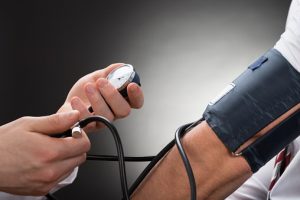 High blood pressure is the most preventable cause of cardiovascular disease, heart attack, and stroke. The incidence of high blood pressure increases with age, but so do the benefits associated with prescribed antihypertensive medications. This changes after the age of 60, however, when high blood pressure medication can be associated with increased mortality rates.
High blood pressure is the most preventable cause of cardiovascular disease, heart attack, and stroke. The incidence of high blood pressure increases with age, but so do the benefits associated with prescribed antihypertensive medications. This changes after the age of 60, however, when high blood pressure medication can be associated with increased mortality rates.
This is in part due to the lack of understanding around hypertension and hypertension treatment in elderly patients over 80. With the rate at which the oldest elderly population is increasing, and is set to increase over the next twenty years, understanding the effects of hypertension medication on patients over 80 is of utmost importance.
Advertisement
For this reason, a new study set out to examine the effects of high blood pressure medication on elderly patients over the age of 80. The researchers chose the following criteria to examine: systolic blood pressure, all-cause mortality, changes in cognitive function, and grip strength (as a proxy for frailty).
The study included 570 participants, aged 85 years, divided into a control group and an experimental group. The experimental group consisted of 249 of the participants who were prescribed hypertensive medication. Something to consider is the higher likelihood for cardiovascular disease in the experimental group at the outset of the data collection over the control group.
Lower Blood Pressure Related to Faster Cognitive Decline
The patients in the experimental group naturally demonstrated lower blood pressure than those in the control. This lower blood pressure was related to reduced cognitive function at an accelerated rate from the controls, as well as increased rate of mortality despite the exact cause of death.
Participants with mental decline were also more likely to have reduced hand-grip strength, indicating a tendency for frailty, though these results did not directly correlate with an increased risk of mortality. The control group did not demonstrate this same relationship between blood pressure and mental or physical decline.
These findings, that patients over 85 with low blood pressure are at a higher risk for cognitive decline and mortality while taking prescription hypertension medication, offer critical information that should be of interest to clinicians. This raises the question of what the optimal blood pressure for patients over 85 is. As this study is an observational study only, examining the data collected through medical data gathering, the results provide only correlational relationships. There is the possibility of reverse causality bias, meaning that the true causation may present itself in a way that the researchers interpret in a backward fashion.
Advertisement
The researchers feel that, until further research can be done to solidify these findings, medical practitioners should continue to individualize treatment for patients older than 80 years old who are suffering from cardiovascular conditions.
For future causational studies, the researchers recommend experimenting with deprescription trials, where elderly patients are weaned off hypertensive treatments to determine whether the benefits remain. They feel these types of trials would be most beneficial to elderly patients with lower life expectancy who show signs of frailty.
Related: How to lower blood pressure naturally
